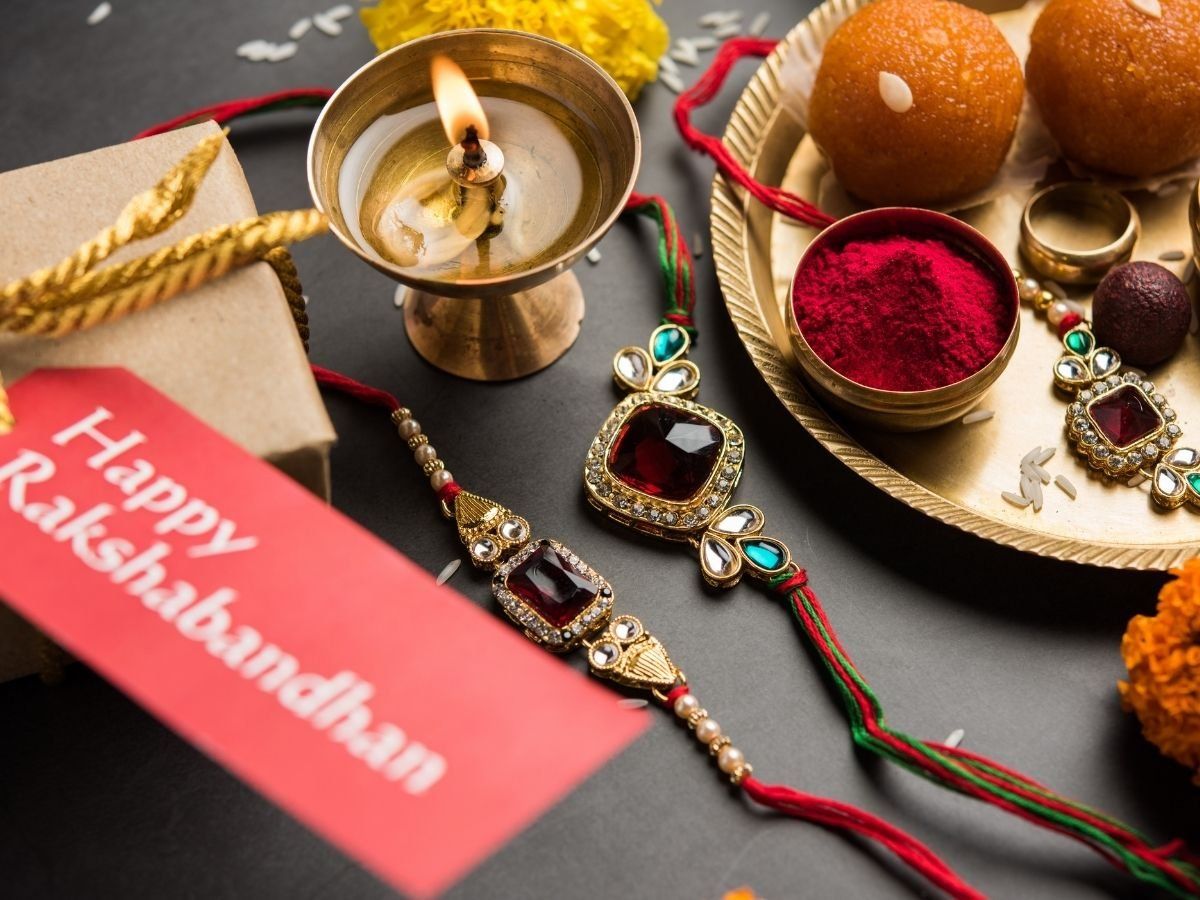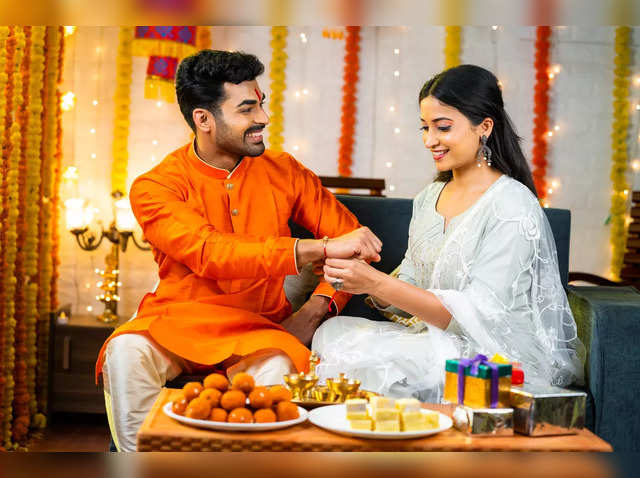Introduction
Raksha Bandhan, a significant and cherished Hindu festival, celebrates the unique bond between brothers and sisters. The festival, known as the “bond of protection,” is marked by the tying of a sacred thread, the rakhi, by sisters on their brothers’ wrists. This symbolizes not just a physical thread but a profound connection of love, care, and protection that transcends the test of time.
Historical and Cultural Significance: The roots of Raksha Bandhan are deeply embedded in Hindu mythology. Legend has it that during a battle between gods and demons, Lord Indra’s wife, Sachi, tied a protective thread around his wrist for strength and prosperity. Touched by this gesture, Lord Indra emerged victorious. This sacred practice evolved into Raksha Bandhan, symbolizing the eternal bond between siblings. The festival has expanded beyond religious boundaries and embraced by people of various communities, reinforcing the universal values of love and familial ties.

Traditional Rituals: Raksha Bandhan is a day of joyous rituals and festivities. Sisters prepare for the occasion by selecting a rakhi, often intricately designed and chosen with love. On the auspicious day, brothers and sisters come together, and the sister ties the rakhi around her brother’s wrist, applying a vermilion tilak on his forehead. The brother reciprocates by showering blessings and presenting gifts as a token of appreciation. This ritual signifies the brother’s commitment to protecting and caring for his sister.
Emotional Essence: Beyond the tangible rituals, Raksha Bandhan is an emotional exchange that strengthens the sibling bond. It serves as a reminder of the shared childhood memories, the laughter, and the unconditional support siblings provide to each other. It is a day to express gratitude for the protective shield a brother offers and the nurturing warmth a sister provides.
Contemporary Trends: In modern times, Raksha Bandhan has transcended its traditional boundaries. While the essence of the festival remains intact, the rituals have adapted to changing times. Today, sisters tie rakhis not only to their biological brothers but also to friends, cousins, and even sisters to celebrate the broader spectrum of relationships. The celebration has become more inclusive, reflecting the evolving dynamics of siblinghood.
Quotes and Messages: Expressing the sentiments of Raksha Bandhan often involves heartfelt quotes and messages. Sisters may convey, “On this Raksha Bandhan, I am grateful for the love, protection, and joy you bring into my life.” Brothers might reciprocate with, “May the bond we share continue to grow stronger with each passing day. Happy Raksha Bandhan!” These messages capture the essence of the festival and add a personal touch to the celebration.

Conclusion
Raksha Bandhan is not merely a festival; it is a celebration of the enduring bond between siblings, a testament to the unwavering support and love that defines this relationship. As the sacred thread is tied, it binds not just wrists but hearts, weaving a tapestry of affection and protection. In a world filled with transitions, Raksha Bandhan stands as a timeless tradition, fostering love, unity, and the enduring strength of familial connections. Happy Raksha Bandhan to all!
Frequently Asked Questions (FAQs)
- What is the significance of Raksha Bandhan in Hindu culture?
- Answer: Raksha Bandhan holds great significance in Hindu culture as it celebrates the unique bond between brothers and sisters. The festival symbolizes the “bond of protection,” marked by the sister tying a sacred thread, or rakhi, around her brother’s wrist.
- How did Raksha Bandhan originate, and what is its historical background?
- Answer: The roots of Raksha Bandhan are deeply embedded in Hindu mythology. Legend has it that during a battle between gods and demons, Lord Indra’s wife, Sachi, tied a protective thread around his wrist for strength and prosperity. This act evolved into Raksha Bandhan, symbolizing the eternal bond between siblings.
- What are the traditional rituals observed during Raksha Bandhan?
- Answer: Raksha Bandhan involves joyous rituals, including sisters selecting a rakhi, tying it around their brother’s wrist, and applying a vermilion tilak on his forehead. Brothers reciprocate by showering blessings and presenting gifts, symbolizing their commitment to protecting and caring for their sisters.
- How has Raksha Bandhan adapted to contemporary times?
- Answer: In modern times, Raksha Bandhan has become more inclusive, transcending traditional boundaries. While the essence of the festival remains intact, sisters now tie rakhis not only to biological brothers but also to friends, cousins, and even sisters, reflecting the evolving dynamics of siblinghood.
- What role do quotes and messages play in expressing sentiments during Raksha Bandhan?
- Answer: Quotes and messages hold a significant role in expressing sentiments during Raksha Bandhan. Sisters often convey gratitude and love, saying, “On this Raksha Bandhan, I am grateful for the love, protection, and joy you bring into my life.” Brothers reciprocate with heartfelt messages, creating a personal touch to the celebration.

